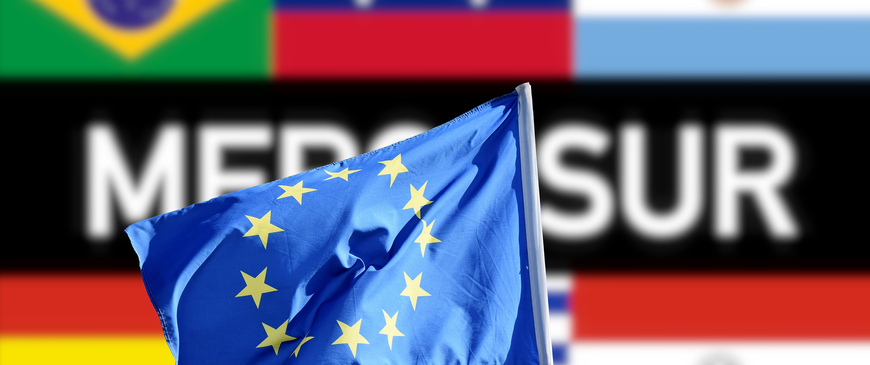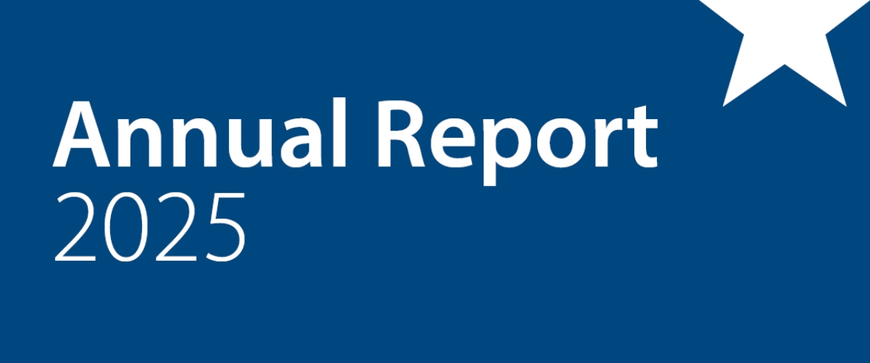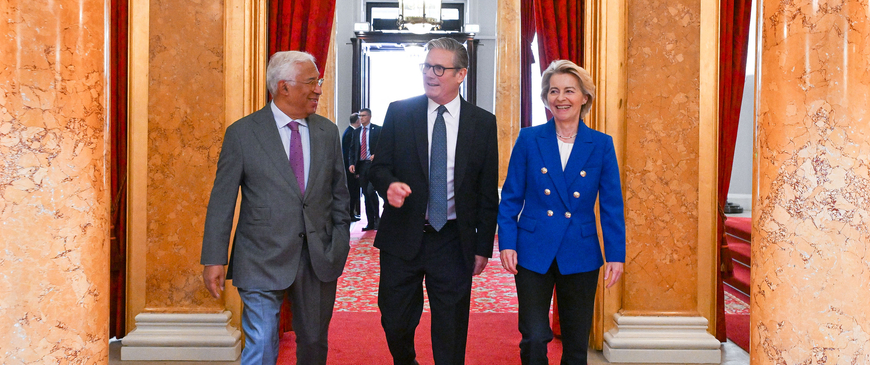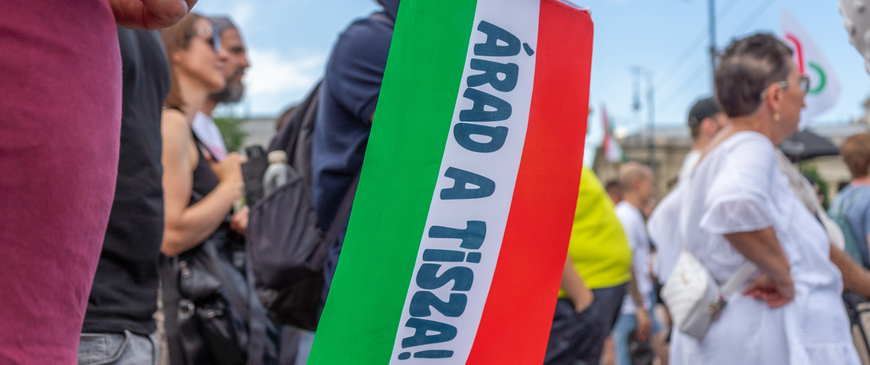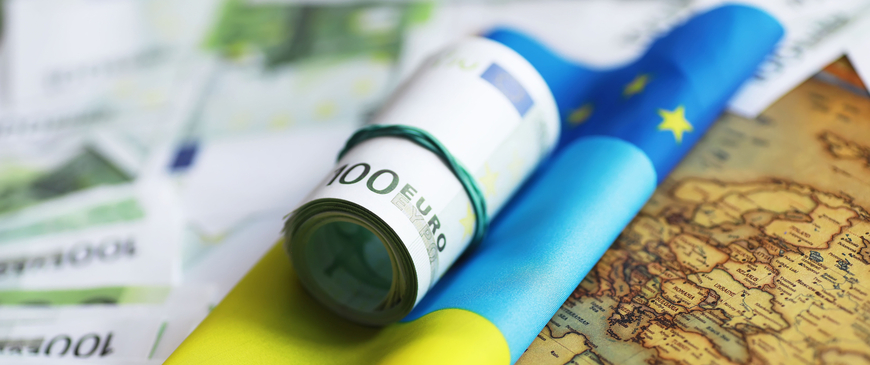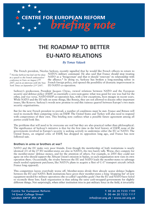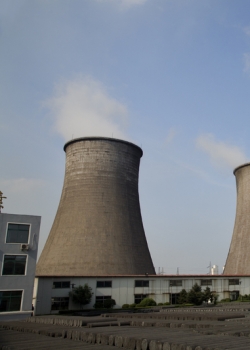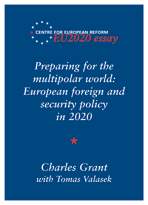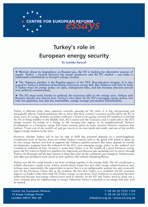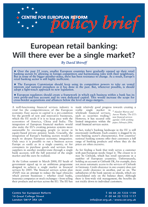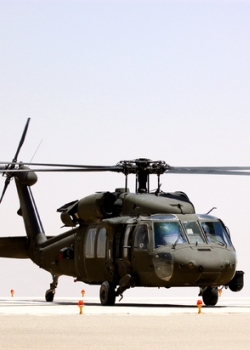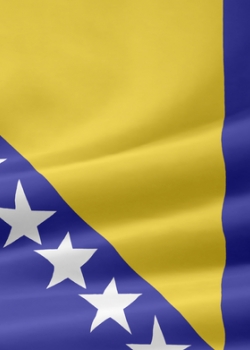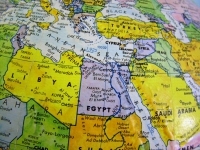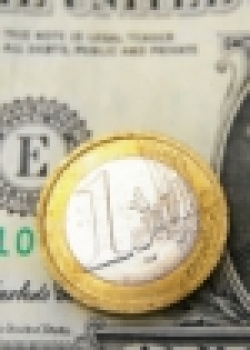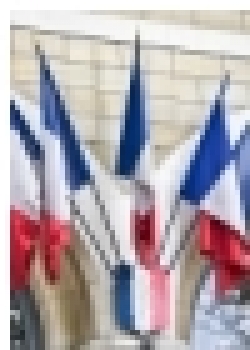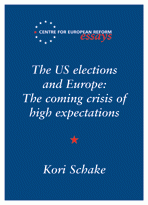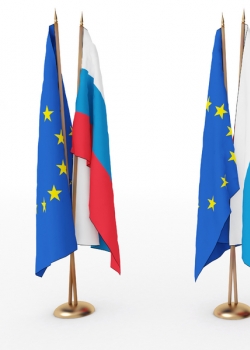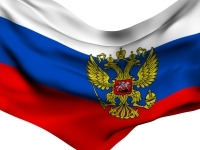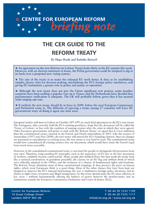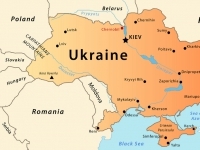Research
The roadmap to better EU-NATO relations
20 December 2007
President Sarkozy has recently said that France may re-integrate into NATO's military command. This abrupt change in French policy opens doors to a much-needed improvement in EU-NATO relations.
Don't be fooled: Bali was no breakthrough
18 December 2007
The United Nations Climate Change Conference in Bali produced as much as it was ever likely to do. There was no breakthrough, contrary to the claims of some that attended the conference.
Preparing for the multipolar world: European foreign and security policy in 2020
18 December 2007
The world is becoming increasingly multipolar. Will that mean democratic poles lining up against autocracies, in two competing camps? Or will all the leading powers support multilateral institutions?
Turkey's role in European energy security
12 December 2007
Turkey – located between big energy producers and the EU market – is crucial for Europe’s energy security. However, plans for the Nabucco pipeline as an alternative to Russian gas supplies are in trouble.
Should Europol and Eurojust merge?
07 December 2007
Governments increasingly use Europol, the EU’s police office, and Eurojust - its prosecution unit - to investigate criminals operating across borders and bring them to justice.
European retail banking: Will there ever be a single market?
03 December 2007
Integrated markets for entertainment and communications, as well as nearly all goods, stretch from the Arctic to Cyprus. By contrast, Europe’s retail banking industry remains largely segmented along national lines.
Politics, Sarkozy and the euro
03 December 2007
Not long after its launch, the euro was famously dismissed by a disgruntled currency trader as a “toilet currency”. How things have changed. Since 2003, the euro’s external value has soared, particularly against the US dollar.
Europe’s defence and its new security strategy
03 December 2007
The European Union is starting work on a new security strategy. France’s president, Nicolas Sarkozy, wants it approved in the second half of 2008, during his country’s EU presidency.
The EU must stand firm on Bosnia
03 December 2007
The EU’s inability to halt the Bosnian civil war of 1992-95 marked the nadir of its attempts to build an effective foreign policy. Eventually the Americans helped the Europeans stitch Bosnia back together, at the Dayton peace conference.
Issue 57 - 2008
30 November 2007
- Politics, Sarkozy and the euro, Philip Whyte
- Europe’s defence and its new security strategy, Tomas Valasek
- The EU must stand firm on Bosnia, Charles Grant, Tomas Valasek
China is losing its EU friends
29 November 2007
The EU is getting tough on China. That, at least, is the impression one gets from high-ranking EU officials that arrived for the annual EU-China summit in Beijing this week. Economics is the main reason for Europe’s changing mood.
Bringing Syria into the Middle East peace process
23 November 2007
The nearer the Annapolis conference comes, the less it looks likely to deliver peace between Israelis and Palestinians. The weakness of the key actors and the current conditions on the ground in the Palestinian territories offer little reason for optimism.
The euro as the world’s reserve currency?
15 November 2007
Back in the 1970s President Nixon’s treasury secretary, John Connally, famously quipped that “the dollar may be our currency, but it’s your problem”.
Sarkonomics – a user’s guide
08 November 2007
President Sarkozy is frequently portrayed in France and elsewhere as an “economic liberal”. This is a mistake. He is undoubtedly an economic reformer prepared to take on the privileges of labour market “insiders”; but he retains a French dirigiste’s belief in an active role for the state in economic development. This manifests itself in several areas, including his support for “national champions”, his mercantilist vision of international trade, and his belief that governments should have greater influence over the European Central Bank (ECB).
The US elections and Europe: The coming crisis of high expectations
01 November 2007
The election of a new US president in 2008 offers an opportunity to repair US-European relations. But, as Kori Schake argues in this essay, both sides must guard against high expectations.
EU-Russia: No more ambitions
01 November 2007
The CER organised a conference on EU-Russia relations in Brussels on October 30th, together with ‘Russia Profile’ magazine. I have been to dozens of these EU-Russia meetings in the last couple of years.
Can the EU learn to live with Chinese mercantilism?
29 October 2007
Not long after its launch, the euro was famously dismissed by a disgruntled currency trader as a “toilet currency”. How things have changed.
A grand bargain with Russia?
19 October 2007
Relations between the Russia and the West have not been so prickly since the break-up of the Soviet Union. Viewed from the US and the EU, Russia is being obstructive across a whole swathe of issues, such as its blockade of trade with Georgia, its refusal to accept independence for Kosovo, and its opposition to further UN sanctions on Iran.
The CER guide to the Reform Treaty
17 October 2007
European leaders will meet in Lisbon this week to reach final agreement on the EU's new 'Reform Treaty'. The main objective is to make the enlarged Union work better, streamline the EU's foreign policy machinery and facilitate co-operation for fighting crime and terrorism.
What now, Ukraine?
05 October 2007
Ukrainians voters have spoken, sort of. On September 30th, they elected a new parliament. They made some heartening choices, backing forces of reform and sidelining smaller, less relevant parties.

